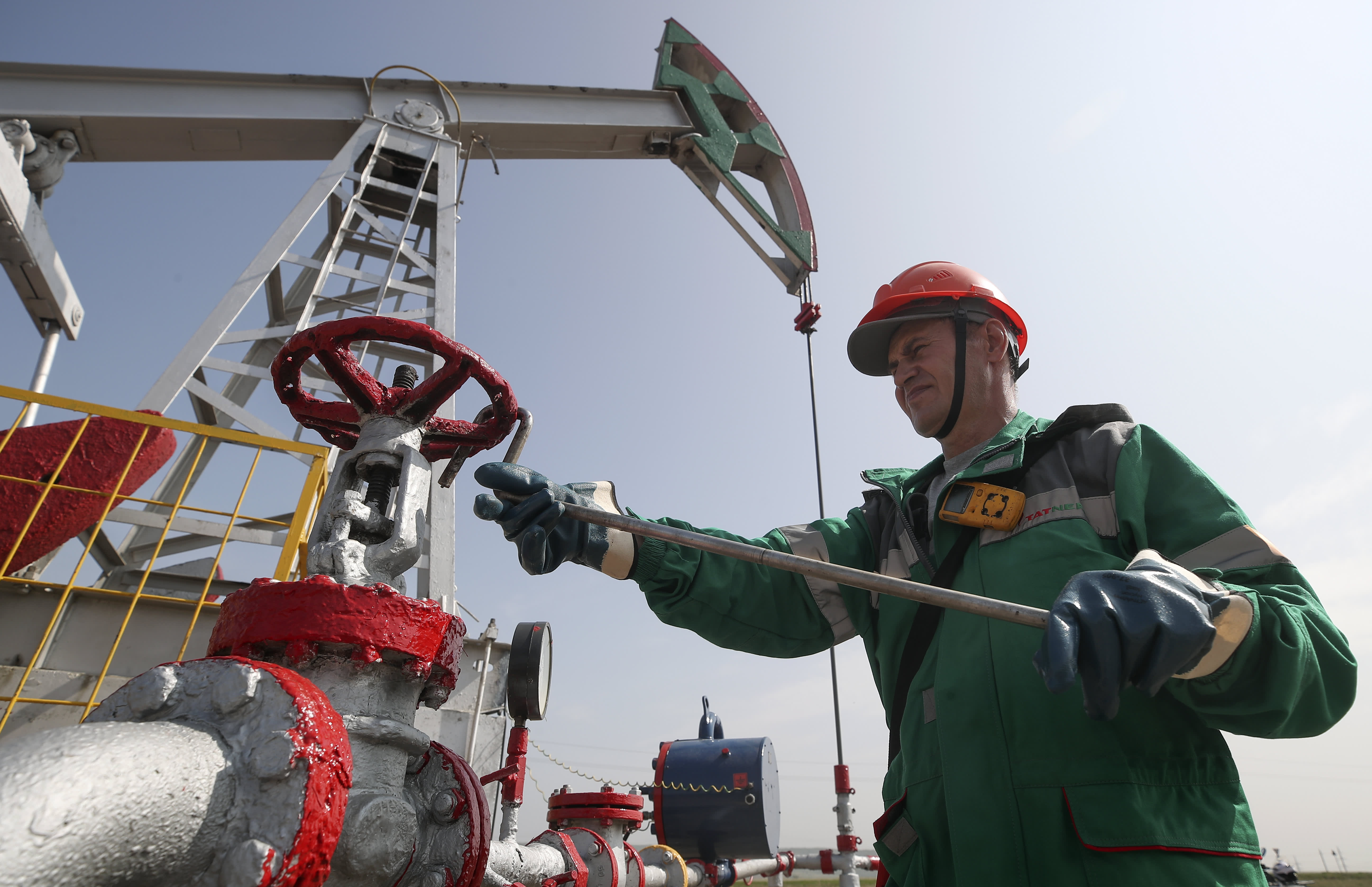
A worker in an oil field developed by Almetyevneft, an oil and gas production board (NGDU) of Tatneft.
Yegor Aleyev | TASS | Getty Images
Energy ministers representing Egypt and Cyprus on Monday said they were deeply concerned about the potential for oil prices to climb above $100 a barrel.
It comes at a time when more than a dozen countries have urged their citizens to leave Ukraine amid warnings of an imminent Russian invasion.
International benchmark Brent crude futures soared to a new seven-year high on Monday morning on the elevated geopolitical tensions. The contract was last seen trading at $93.86, down 0.6% for the session after earlier hitting a peak of $96.16.
U.S. West Texas Intermediate futures, meanwhile, stood at $92.59, roughly 0.5% lower.
The U.S. and Europe have threatened to sanction Russia if it invades Ukraine, escalating fears of a possible supply disruption from one of the world’s top producers. Russia has repeatedly denied it is planning to invade Ukraine dispute amassing around 100,000 soldiers on Ukraine’s borders.
Speaking at an oil and gas exhibition conference in Cairo, Egypt, energy and petroleum ministers representing Egypt, Cyprus, Israel and the United Arab Emirates were asked whether they expected oil prices to spike into triple-digit territory.
“For me, being professional I can see it happening, but I don’t want it to happen,” Egypt’s Petroleum Minister Tarek El Molla told CNBC’s Hadley Gamble at EGYPS 2022.
“It is on the way, definitely,” he added.
Tarek El-Molla, Egypt’s oil minister, speaks during the 2019 CERAWeek by IHS Markit conference in Houston, Texas, U.S., on Wednesday, March 13, 2019.
F. Carter Smith | Bloomberg | Getty Images
Cyprus’ Energy Minister Natasa Pilides agreed it was “a very scary concept” to imagine oil prices surpassing $100 a barrel. “It is actually quite tangible,” she added.
“It is very difficult to deal with because on the one hand, we have the tendency particularly in the last few months of subsidizing basically which is not the norm, so we are in that difficult position where when you start doing that it is very difficult to stop it,” Pilides said.
“We definitely need to stick to our targets in terms of the energy transition, but I would also add that natural gas has a place in that trajectory as a bridge fuel.”
Speaking at the same panel event, Israeli energy minister Karine Elharrar said: “It is a very hard question, but I think if we don’t want to be at [$100 oil] then we have to make sure that we have a diversity of energy sources.”
The International Energy Agency has previously recognized natural gas as the “cleanest burning and fastest-growing fossil fuel,” but has cautioned that its longer-term use in a transition to net-zero energy systems is uncertain.
To be sure, the burning of fossil fuels, such as coal, oil and gas, is the chief driver of the climate emergency.
Does OPEC have a plan if Russia invades?
“You know me, I am not going to answer the question,” UAE energy minister Suhail al-Mazrouei told CNBC’s Hadley Gamble when asked whether oil prices could surpass $100 a barrel.
“I think what is happening to the market is a geopolitical tension and that is what driving primarily the prices. It is very difficult to predict when it comes to geopolitics,” he added, referring to the Russia-Ukraine crisis.
Oil producer group OPEC and its allies, a group known as OPEC+, have struggled to ramp up production in recent months, despite pledging to gradually unwind record supply cuts. The UAE is a member of OPEC.
When asked whether OPEC+ had a plan in the event Russia invades Ukraine, al-Mazrouei replied: “I don’t think we need to escalate more than what is said. What we hear is there is no intention for invasion and that, I think, is comforting.”
“I would be on that camp that is not seeing that happening,” he said, adding that he hoped diplomacy between Russia and Europe would prevail.




